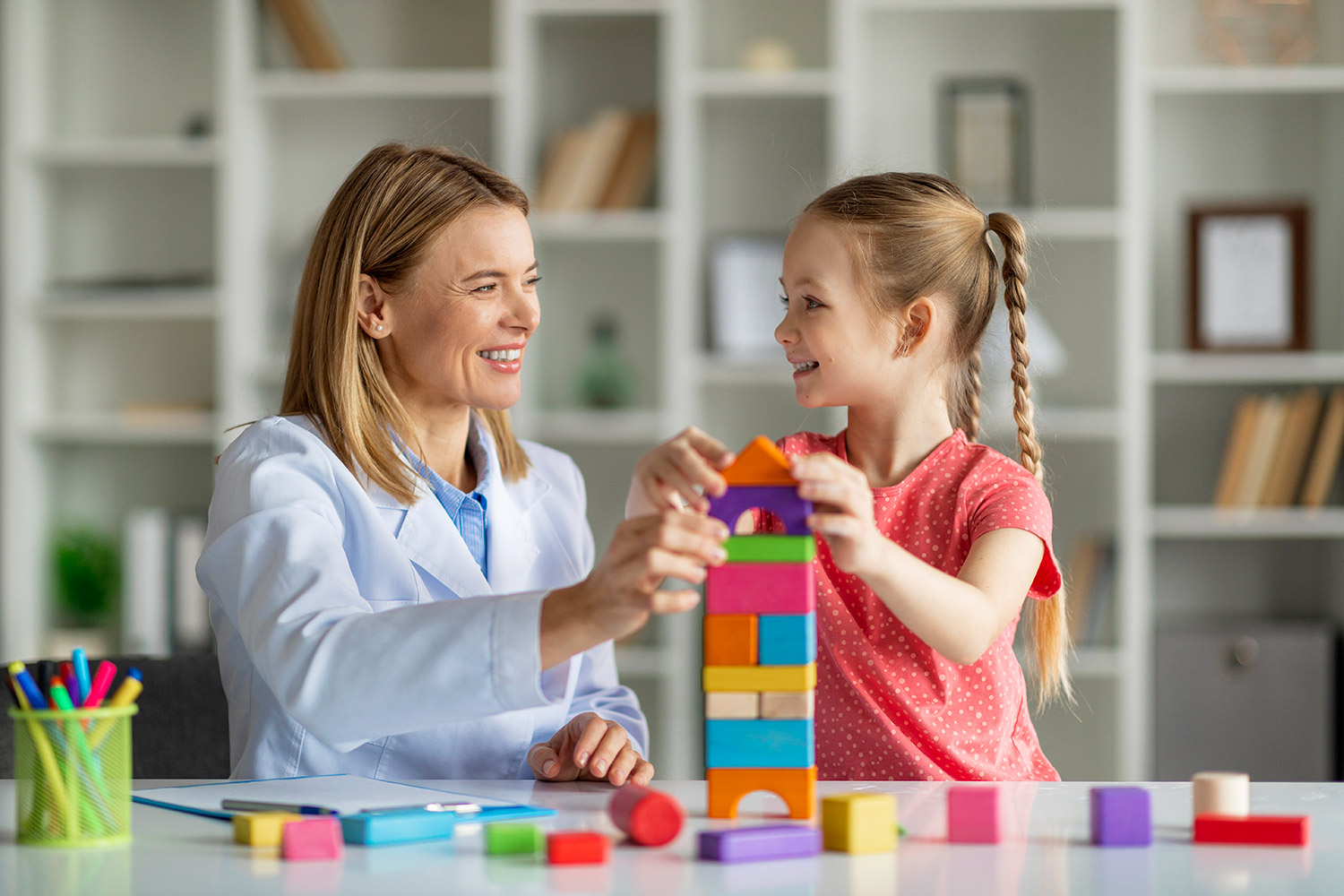Play Therapy is defined by the Association for Play Therapy as “the systematic use of a theoretical model to establish an interpersonal process wherein trained Play Therapists use the therapeutic powers of play to help clients prevent or resolve psychosocial difficulties and achieve optimal growth and development.”
Play Therapy should only be provided by licensed clinical mental health professionals with a graduate mental health degree and extensive specialized play therapy education, training and supervised experience.
Play therapy research has shown effectiveness on improving or supporting children experiencing various concerns/needs such as:
- Internalizing behaviors such as anxiety, depression, and others
- Externalizing behaviors such as aggression, disruptive behaviors, self-control, and others
- Attachment issue
- Academic performance
- Autism
- Attention deficit
- Homelessness
- Loss and bereavement
- Medical conditions
- Parents/caregiver/teacher relationship
- Self-concept/self-esteem
- Social-emotional assets
- Speech/language struggles
- Trauma, natural disaster, and PTSD
In addition, play therapy is NOT:
- Not a place for children to just have fun. For children in play therapy, the process of exploring, experiencing, and working on what needs to be work could be overwhelming and challenging.
- Not trendy, gimmick-like, unestablished approaches, models, or protocols with play as a means to an end and not a key ingredient are not play therapy.
- Not any therapy utilizing toys is play therapy. The intervention has to meet the definition of play therapy. Play therapy is an intentional and developmentally appropriate way of working with children that requires specialized training and supervision.
- Not a modality that can be utilized by anyone who does not have proper training that meets the requirements and standards of APT.
- Not random interventions that are labeled under the umbrella of play therapy. Instead, it is the intentional use of toys and theory to help a child heal, with a therapeutic relationship as the foundation.
- Not a way to get children to talk. Talking may and often does occur through the natural progression of play therapy, yet it is not the most important objective.
To learn more about the process of play therapy, please visit the Association for Play Therapy at a4pt.org.


